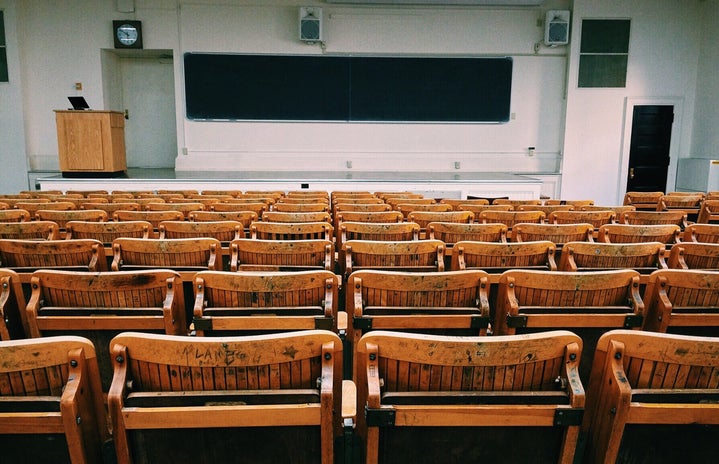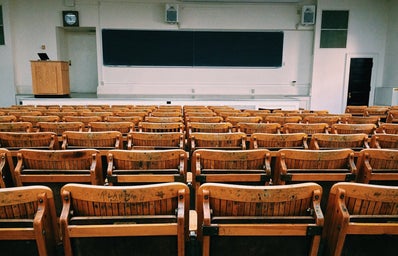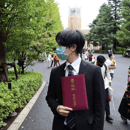Seminar on Comparative Politics
The Advanced Seminar (専門演習) is an established setting for social science students at Waseda’s School of Political Science and Economics (SPSE) students, which allows students with common academic interests to collaborate with each other and pursue group or independent research under the close supervision of a professor. During my time in Waseda SPSE, I belonged to Associate Professor Willy Jou’s Advanced Seminar which focuses on the political science topics of civic culture, social capital, and value change where some of the main activities in his seminars include discussing different models and theories related to seminar topic while observing various analyses on public opinion, political representation, voting behavior, and party competition trends across time and regions.
Through preparing and delivering around eight group and individual presentations in total, I was able to broaden my knowledge base and sharpen my research skills throughout the consecutive seminars in the past two years.
Lecture on International Relations
Becoming a student at Waseda SPSE exposes me to a wide array of courses, including courses that lie at the intersection of Economics and Political Science. A wide range of elective lecture courses is open to social science students at the SPSE, notably subjects that are placed at the intersection between Economics and Political Science, such as contemporary public policy and global governance.
Not limited to that, Waseda SPSE also provides courses centered around the political, economic, and diplomatic aspects of modern Japan, dating from the 1868 Meiji Restoration until its post-WWII economic miracle. Among the available courses on modern Japan, one of my favorite is International Relations of Japan that was taught by Associate Professor Kuniyoshi Tomoki (国吉知樹). Associate Professor Tomoki is an expert in international history who presents multidimensional explanations on prominent events in Japan’s diplomatic history, such as the the Treaty of San Francisco in 1951 and the Okinawa Reversion Agreement in 1971. Some of the distinct features of his explanation is his emphasis on the decision-making processes of state leaders, diplomats, and main political actors, and utilization of recent historical evidence. Through these, he managed to offer a comprehensive evaluation of politicians’ diplomatic stances and policies and explain the changing power dynamics and bargaining behavior. In short, throughout his lectures, he successfully disentangled the role of intertwining variables and integrated the interests of major players in Japan’s diplomatic history.
Therefore, his class format and teaching style have made the seemingly complicated history of post-WWII Japan more easily comprehensible, while still making the material intriguing and intellectually stimulating for students. Furthermore, we could indeed apply some of the diplomatic moves taken by the main historical figures learned from the lecture to our daily actions and positions. I have benefited a lot from the intriguing courses offered at Waseda SPSE, especially the guidance provided by the professors and the extensive opportunity for group assignments and teamwork. By the end of my time in Waseda, I have been trained to transfer theories into practical abilities by viewing the world around me through the lens of knowledge and discover the greatest charms of studying social science, mainly its connectedness to human nature and its application to real-world problems.
Reading Books in Social Science
My recent favorite books are Modernization and Postmodernization: Cultural, Economic, and Political Change in 43 Societies (Inglehart, 1997) and Cultural Backlash: Trump, Brexit, and Authoritarian Populism (Inglehart and Norris, 2019). The two pieces probe into the global trend of postmaterialist values and the more recent rise in the reverse trend of “authoritarian reflex” that has been evidently taking place in the U.S. and Western Europe.
By making full use of ample time-series and cross-regional empirical data, Inglehart and Norris have effectively unpacked, examined, and compared the extensive connections and implications of a set of political concepts such as political participation, partisan affiliation, voting behavior, and electoral system across generational gaps and across countries that they presented in some models, such as modelling the rising working class’s support for right-wing populist parties.
The balanced combination of qualitative models and data-intensive approaches make the books strongly recommended to young students in political science who are interested in political representation issues, especially public opinion, political attitude and ideology, and electoral mobilization, and who seek to study them through the lens of materialism and postmaterialism. Furthermore, it is important to note that Inglehart’s pioneering works have pioneered the direction for future studies in the abovementioned fields and gained much notoriety in academia.
I advise newly entering undergraduate students to read relevant books and journal articles for their future research. For their reference, besides the popular Central Library and Building No. 3’s Lee Kun-Hee Commemorative Library, various collections and literature in English can be found in the S. Takata Memorial Research Library (高田早苗記念研究図書館), which is surrounded by towering trees. I have spent large proportions of my summer and spring breaks inside this antique and quiet construction reading about the history-changing thoughts of the social science giants next to the wooden bookshelves, undisturbed by the traffic and crowds in downtown Tokyo.
Although I do not yet have the capacity to comprehend their thoughts thoroughly, I consider reading as a method to converse with those giants who have left imprints on today’s academia and the world we are living in right now, and feeling the pulse of their eras and societies.
Wandering Around Waseda Campuses
Waseda University provides a variety of opportunities for students who share deep interests in the fine arts, music, drama, and history, and it has been a great pleasure for me to visit and enjoy the museums and theaters on campus during my free time. One of my favorite museums is the church-looking Tsubouchi Memorial Theatre Museum (坪内博士記念演劇博物館) next to Building No. 3, which stores and regularly exhibits world-class art collections from different eras and regions.
Aside from becoming a center of academic development, Waseda University has also shown deep respect for cultural and societal diversity by creating a supportive and friendly environment for students to engage in conversations and activities with those from different backgrounds to promote an exchange of viewpoints with one another based on mutual trust and respect.
With the help of these opportunities, I am able to explore Japanese culture and develop into a well-rounded individual who is accustomed to addressing social science issues from a cross-cultural perspective. In short, Waseda University manages to combine the solemnity of its history with the liveliness of its young students from all over the world.


